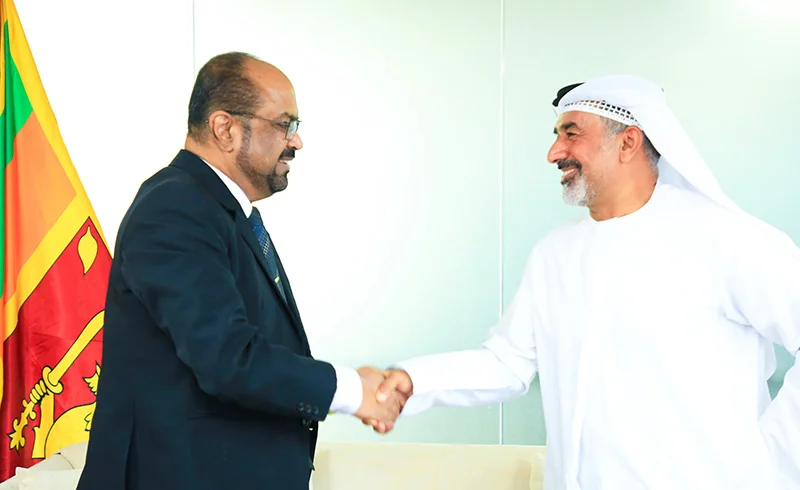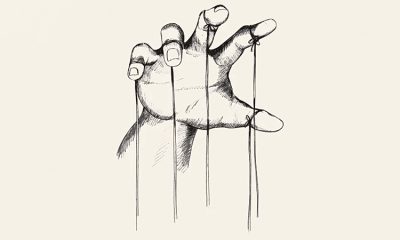News
Stop excessive money printing to avert a far worse crisis – SJB

‘The only way prices can be controlled is not by gazette or emergency rule, but via the market itself’
In principle price controls fail, and they create shortages and black markets. The only way prices can be controlled is not by gazette or emergency rule, but via the market itself, says top Samagi Jana Balavegaya spokesman and economist Dr. Harsha de Silva.
Issuing a statement in the wake of the government doing away with price control, Dr. de Silva has said: “To do so, the reason why prices are increasing must be determined. Is it a temporary increase due to a supply shortage, say a drought or flood or is it because aggregate demand has increased due to increased money supply? The answer will depend on what is causing prices to rise.
“In the case of Sri Lanka, the massive expansion of money is the cause for continuous increase in prices or inflation. This is the reason for the rapid depreciation of the currency as well. The only short-term solution to reduce this excessive rate of money growth is to stop excessive money printing. If monetary accommodation is continued inflation could turn into hyperinflation and further depreciation of the currency leading to serious social unrest.
“However, the reality is that much of the population cannot bear the increasing costs. It is not a secret that middle-class families have had to cut down on expenses. The situation among the low-income families is a lot worse. People have had to give up meals. It is the responsibility of the government to ensure people don’t starve due to the total mess up of the economy by the politicized Central Bank that continuously ran its printing press a la modern monetary theory that was bound to fail. It is imperative that an income support mechanism be implemented for the most vulnerable immediately. This can be implemented via the Samurdhi scheme even though it is nowhere near ideal.
“Beyond the short term and in a more stable macroeconomic environment, we need to be more productive. For instance, accurate information on weather, better use of technology, application of right amounts of fertiliser, efficient storage and logistics would help improve the supply of agricultural produce. Similarly, the productivity must increase in manufacturing and services.
“In the meantime, the government must correct market failures by appropriate regulation to foster competition in the market. Take for instance the rice market. While there is more than enough paddy harvested there is a huge shortage of rice. That is because the rice manufacturing market has been captured by a few big millers and competition has been wiped out. The way to correct that market failure is to empower the hundreds of SME rice millers by providing them working capital and get their supply into the market. Instead, the government has now decided to import rice to control the prices. This wrong policy will make the problem worse, from market failure to government failure. When imports are stopped, all the SME millers would be out of business the big players will completely dominate the market.
“The SJB believes in a social market economy where competition will be encouraged with necessary amount of regulation to maintain a stable market. We will ensure that all parties to a transaction, the firm or the investor, the worker or the farmer and the regulator or government would together arrive at sustainable equilibrium so that longer term growth with equity could be maintained. However, given that the economy is in such dire straits, the truth must be told to the public that there is no free lunch and we as a nation will have no option but to work hard to a plan. And that plan will call for significant economic reforms and integrating Sri Lanka with global production networks. The resulting export-led growth, as opposed to the current import-substitution led growth, would significantly elevate living standards of our people while allowing for sufficient funding to provide safety nets for those in need.”
News
Suspended Parliament official to move Court of Appeal, seek international intervention

Chamindra Kularatne, the suspended Deputy Secretary General of Parliament and Chief of Staff, has told the Opposition that he will seek the intervention of the Inter-Parliamentary Union (IPU), Commonwealth Parliamentary Association (CPA), Association of Secretaries General of Parliament (ASGP) and the United Nations Human Rights Council (UNHRC).
Kularatne has also declared his intention to move the Court of Appeal against the suspension that came into effect on 23 January on the basis of an inquiry conducted by retired Additional Secretary S.K. Liyanage.
The inquiry found fault with Kularatne for receiving a pension for a three-year and seven-month period he served as the Secretary to the Chief Government Whip during the previous administration. However, political sources said that though that particular appointment had been on a contract basis, in terms of a gazette issued at that time, it was made pensionable. Therefore, there couldn’t have been any issue with regard to Kularatne receiving a pension as stipulated in the gazette, sources said. The Island learns that Public Administration, Provincial Councils and Local Government Ministry advised that the Cabinet of Ministers be consulted regarding the matter but the Parliament acted even without bothering to seek Kularatne’s explanation.
The Staff Advisory Committee (SAC), chaired by Speaker Dr. Jagath Wickremaratne, has initiated the inquiry, though such an action should have been the prerogative of the Secretary General of Parliament, Kushani Rohanadeera, sources familiar with the developments relating to the unprecedented case, said. The SAC has also disregarded stipulation that in case of an inquiry against the Deputy Secretary General of Parliament, it should have been conducted by an officer senior to him.
The SAC consists of the Speaker, Chief Government Whip Bimal Rathnayake, Deputy Finance Minister Prof. Anil Jayantha (he represents President Anura Kumara Dissanayake who also holds the Finance portfolio) and Opposition Leader Sajith Premadasa/Chief Opposition Whip Gayantha Karunatilleke. Sources said that the SAC had been deeply divided over the decision, with SJB Karunatilleke expressing opposition to the course of action proposed by the Speaker, while Prof. Jayantha didn’t extend his support. Before Kularatne had been informed of the SAC decision on 23 January, he wasn’t given an opportunity to respond to whatever allegations directed at him, sources said.
Kularatne’s complaint to IPU would be the second against Speaker Dr. Wickremaratne since his appointment as the Speaker on 17 December, 2024. The first complaint has been lodged by Jaffna District independent group member Ramanathan Archuna. Parliament accepted the NPP’s proposal to appoint the Polonnaruwa District lawmaker after their first choice Asoka Ranwala resigned after being exposed for false claims of his higher educational qualifications.
Sources said that the ruling party had targeted Kularatne because an influential section, within the government, believed that he had sneaked on the Speaker. Kularatne’s sacking and related accusations and counter accusations dominated social media.
Opposition Leader Sajith Premadasa and ITAK Batticaloa District lawmaker Shanakiyan Rasamanickam threw their weight behind Kularatne with Premadasa questioning the legality of the action taken without seeking an explanation from the official.
Authoritative sources said that in terms of the Parliament (Powers and Privileges) Act, in addition to members of Parliament, officials, too, received protection.
During the United National Front government of Prime Minister Ranil Wickremesinghe, the then Speaker, the late W.J. M. Lokubandara, interdicted Director General (Administration) Lacille de Silva over alleged misconduct though the official claimed he was punished for leaking information. Lacille de Silva successfully moved court against his interdiction and secured his position.
By Shamindra Ferdinando
News
Sri Lanka, UAE review energy cooperation; Trincomalee hub plans discussed

The Ambassador of the United Arab Emirates (UAE) to Sri Lanka, Khaled Nasser Al Ameri, met Minister of Power and Energy Eng. Kumara Jayakody yesterday (26) to review progress on bilateral energy cooperation and explore new avenues for collaboration, with a strong focus on regional energy security and strategic infrastructure development.
The high-level discussion centred on the implementation status of understandings reached in recent years, particularly in the energy sector, and on identifying fresh opportunities to deepen engagement between Sri Lanka and the UAE. Both sides underscored the importance of translating earlier agreements into tangible outcomes amid Sri Lanka’s ongoing energy transition.
A key focus of the talks was the proposed development of the Trincomalee region as a regional energy hub. The meeting reviewed follow-up actions related to the tripartite Memorandum of Understanding signed last year between Sri Lanka, India and the UAE, which envisages collaborative development of energy-related infrastructure and logistics in and around Trincomalee, leveraging its strategic location in the Indian Ocean.
Officials discussed the next steps required to operationalise elements of the agreement, including coordination mechanisms, investment frameworks and timelines, with a view to positioning Trincomalee as a focal point for energy storage, supply and distribution in the region.
The discussions also addressed broader cooperation on regional energy security, with both parties acknowledging the growing importance of resilient, diversified and sustainable energy systems amid global volatility.
The UAE reiterated its willingness to support Sri Lanka’s energy objectives, including through technical expertise, investment and strategic partnerships aligned with the country’s long-term power sector goals.
Minister Jayakody highlighted Sri Lanka’s commitment to strengthening international partnerships to ensure energy security, accelerate infrastructure development and support the shift towards a more reliable and future-ready energy mix.
Ambassador Al Ameri reaffirmed the UAE’s interest in expanding its role as a key partner in Sri Lanka’s energy sector, building on existing goodwill and cooperation.
The meeting reflects Colombo’s broader diplomatic and economic efforts to attract strategic partners to its energy sector, particularly for large-scale projects with regional significance, as Sri Lanka seeks to stabilise supply, enhance security and position itself as an emerging energy and logistics hub in the Indian Ocean, the Ministry said.
By Ifham Nizam
News
Pathfinder Foundation inaugurates a repository for Sri Lanka’s peace initiatives

The Pathfinder Foundation’s Repository for Sri Lanka Peace Initiatives was inaugurated by Erik Solheim—former Norwegian Special Envoy to the Sri Lanka peace process, former Minister of the Environment and International Development of Norway, and former Executive Director of the United Nations Environment Programme (UNEP)—at the invitation of Milinda Moragoda, Founder, and Bernard Goonetilleke, Chairman of the Pathfinder Foundation, both among the principal negotiators of the peace process.
Over several decades, Sri Lanka repeatedly sought to resolve the separatist conflict through negotiations. Despite several initiatives, none succeeded in bringing the conflict to a negotiated conclusion.
Over the years, numerous publications—both local and foreign—have examined Sri Lanka’s conflict. SCOPP maintained a substantial body of documentation on the peace process, from January 2002 to January 2008, and the Norwegian facilitators also hold an extensive collection of records. Nevertheless, a major gap remains: the absence of a consolidated repository that brings together available documentation on the peace process, particularly one that preserves material relating to negotiations that did not reach a conclusive settlement.
Responding to this gap and encouraged by many associated with or studying the process, the Pathfinder Foundation has taken steps to establish a dedicated repository to collect and preserve documentation on Sri Lanka’s peace initiatives. Under this project, the Foundation will gather relevant information on the peace process from local and international sources.
-

 Business2 days ago
Business2 days agoComBank, UnionPay launch SplendorPlus Card for travelers to China
-

 Business3 days ago
Business3 days agoComBank advances ForwardTogether agenda with event on sustainable business transformation
-

 Opinion6 days ago
Opinion6 days agoRemembering Cedric, who helped neutralise LTTE terrorism
-

 Business6 days ago
Business6 days agoCORALL Conservation Trust Fund – a historic first for SL
-

 Opinion3 days ago
Opinion3 days agoConference “Microfinance and Credit Regulatory Authority Bill: Neither Here, Nor There”
-

 Opinion5 days ago
Opinion5 days agoA puppet show?
-

 Opinion2 days ago
Opinion2 days agoLuck knocks at your door every day
-

 Features7 days ago
Features7 days agoThe middle-class money trap: Why looking rich keeps Sri Lankans poor













